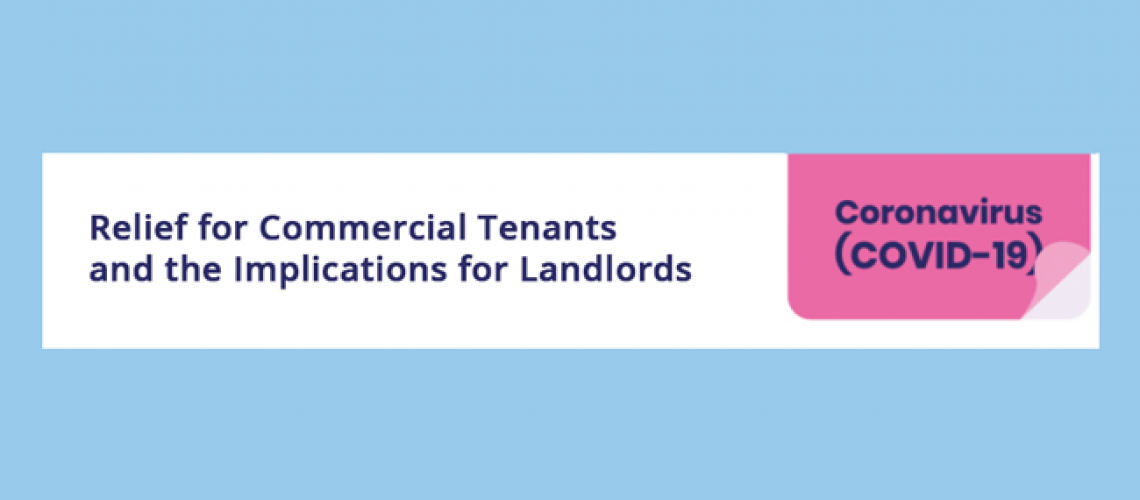For starters, this information is based on the Prime Minister’s announcement on 7th April 2020 to provide relief for certain commercial tenants during the period of the COVID-19 pandemic and a reasonable recovery period (“the Recovery Period”). Always make sure you access the most recent information and get in touch if you’re in doubt.
Let’s break this down into pieces:
What is the purpose of the new rules?
In summary, the rules enable businesses affected by the COVID-19 Pandemic to have rental obligations waived or deferred to help them recover. A Code of Conduct (we’ll call it ‘the Code’) will be implemented through State/Territory legislation and regulations. Each State/Territory will establish Industry Code Administration Committees made up of landlord, tenant, and State/Territory representatives.
When does the Code take affect?
Each jurisdiction can determine the start date provided it is after 3rd April 2020. It will run for the same period as the JobKeeper program, which is currently due to end 27 September 2020.
Is it mandatory?
Yes!
Who is impacted under the Code?
Commercial owners, operators, and other landlords together with qualifying commercial tenants (including retail, office and industrial tenants) are affected.
What exactly is a ‘qualifying commercial tenant’?
Eligible businesses (which appears to include not-for-profit businesses) applying for relief under the Code must:
- Have a group annual turnover of less than $50 million
- Be eligible for the JobKeeper program
- Be suffering some Financial Stress and Hardship (“FSH”) defined as an individual, business or company’s inability to generate sufficient revenue as a direct result of the COVID-19 pandemic that causes the tenant to be unable to meet its financial and/or contractual (including retail leasing) commitments. Notably, businesses that qualify under (1) and (2) above are automatically assumed to be suffering FSH.
How is the Code applied between landlords and qualifying tenants?
The Code specifies certain principles on which the parties should negotiate changes to existing leases. In summary:
- The underlying philosophy is that landlords and tenants share a common interest in ensuring business continuity so they should enter good faith negotiations based on full disclosure of all relevant information.
- Each situation is different and a collective industry position is not possible. Landlords and tenants should arrive at sensible arrangements suited to their own situations.
- The tenant will obtain rent relief due to a decline in turnover. For guidance, a tenant experiencing a 50% reduction in turnover should receive a 50% reduction in rent.
- At least half of any rent reduction should be offered as a waiver and up to half can be offered as a deferral (recoverable within 24 months).
What else will influence discussions between landlord and tenant?
Each situation is different but the existing lease agreement and relationship will be important, e.g.:
- The financial status of the tenant (especially if in receivership or administration)
- The term (and expiry date of the lease)
- Whether the tenant is already in arrears
And the Code specifies additional principles to consider including:
- Landlords cannot terminate leases because of nonpayment of rent up until the end of the Recovery Period.
- Tenants must comply with all lease terms or face forfeiture of any protections.
- Reductions in statutory charges (e.g. land tax, council rates), insurance and/or benefit a landlord obtains due to deferral of loan payments should be (proportionately) passed on to the tenant.
- Landlords should waive expenses/outgoings payable by a tenant during the period the tenant is not able to trade and can reduce services in such circumstances.
- Any obligations to repay money (e.g. because of deferred rent) should occur over an extended period and only commence on the earlier of the conclusion of the pandemic or the existing lease expiring and taking into account an RP.
- Fees, interest or charges should not be applied with respect to rent waived and no fees, charges or punitive interest should be charged on rent deferrals.
- Landlords may not apply any prohibition or levy any penalties if tenants reduce opening hours or cease to trade due to the COVID-19 pandemic.
- Landlords may not draw on a tenant’s security deposit for the non-payment of rent during the period through the end of the RP.
- So that the tenant has additional time to trade on existing lease terms during the RP, they should be provided an opportunity to extend the lease for an equivalent period of the rent waiver and/or deferral period.
- Landlords will not increase rent (except for retail leases based on turnover rent) until the end of the RP.
What happens if the landlord and tenant cannot reach an agreement?
Binding mediation will be available through the applicable state or territory retail/commercial leasing dispute resolution processes.
This is very new so… what will happen next?
State / Territory governments are legislating provisions to implement the Code in their jurisdictions and some provisions may vary from those in the Code. Some people believe legislation will be introduced which impacts the residential sector and larger commercial tenants. Governments will probably urge landlords and tenants NOT covered by the Code to follow the spirit of the Code.
So the impact will be extensive?
Yes, the impact on commercial landlords seems extensive even for individuals, non-residents, superannuation funds, related party lessor/lessee arrangements as well as State/Territory Agency lessors. It is unclear how this affects sub-lease arrangements.
Both landlords and tenants will have to carefully consider tax and accounting issues arising.
Please get in touch with your Juggernaut Adviser to consider how this program can be utilized in your business.

